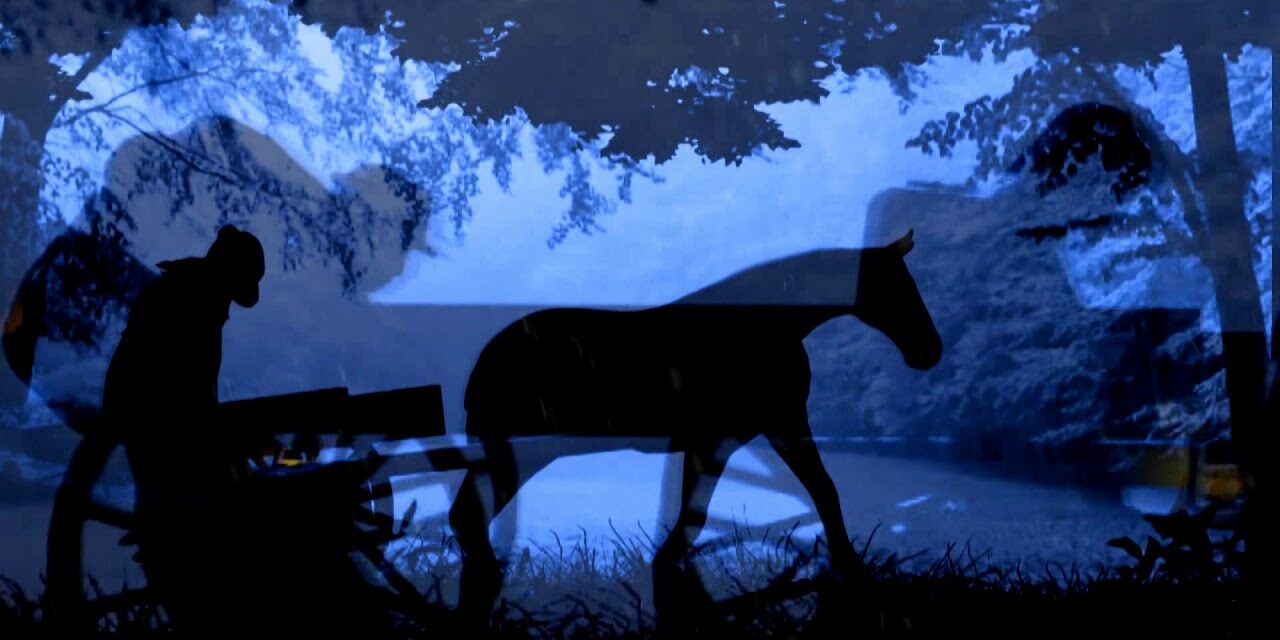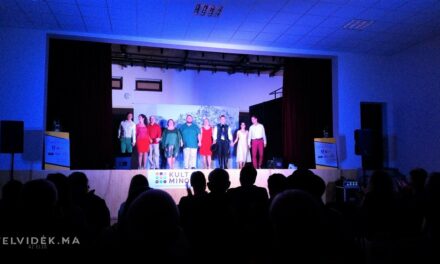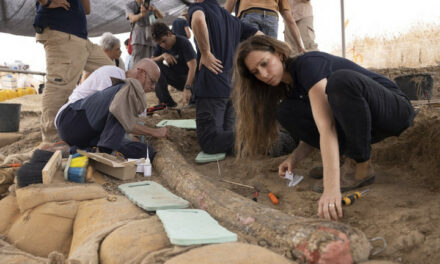Do they understand the message that we and Europe have been trying in vain to understand for more than a century?
Two days after the mournful 103rd anniversary of Trianon and one day before the opening of the Hungarian Motion Picture Festival in Veszprém, a film from last year, The Flying Village , is on my mind, which can now win its 10th international award. The short feature film was born from Babits' novel of the same name from 1921, its narration follows the text of the book almost throughout, and its visual world faithfully reflects the main nodes of the painful story with its animated moments and strange, silent montages.
A Székely resident of Fogaras (András Sinkovits-Vitay) tells the writer Mihály Babits (Bálint Adorjáni) in a small pub in Pest about the dream of a little boy who has been feverishly cold for days on the refugees' cart. The residents of the village of Csíktábor are called up at night to immediately pack and go down and up: they have to leave their homes before dawn, they can only take the most necessary things with them. Wailing, leaving in the moonlight, abandoned darkening houses that have been moved into. It hurt to leave the furniture on the veranda, the good armchair.
"For sure, God, it hurt to leave them like a good friend... I can't believe it didn't hurt them either... Now there's some bony mutt sitting in my armchair... His grandfather was still a bear, his father was a skunk, even his ungulate was hanging out..."
The writer is impatient, because he has heard so many stories like this, he was burned out by the series of unspeakable tragedies. Maybe we are the same way today. It happened more than 100 years ago, why is it of interest to us today? - can be heard from many sides.
After a while, we even tend to forget that the Day of National Unity is not a holiday, but a day of mourning.
We also tend to treat the fact that historical Hungary lost two-thirds of its territory and almost half of its population as a mere fact.
Our economic power, our treasures in the lands, have been extinguished, and now others are enjoying their looted possessions.
"Then the European Union, borderlessness, great common internationalism and federation will solve our problems"
- they say the old communist text, in globalist guise.
Also the problems of the more than half a million refugees from Transylvania, most of whom lived in wagons and camps for years? Families were torn apart, in many cases relatives did not see each other for decades, and those who fell under foreign rule became second-class citizens. Despite all this, the majority of them declared themselves to be Hungarian all along.
But the houses in the movies don't let themselves go. The roots of the trees are uprooted, the church flies up, the buildings also come off their foundations and go after the refugee camp under the cover of a big night cloud. The grasses also run in front of the Dutch soldiers, and they squeal almost as if they have failed. The drink stolen from good wine cellars flows like poison in their bodies.
"Because wine has a soul, unlike people," notes Székely from the film.
And all this is not only seen by the feverish child, but also by adults. As the village collapses next to their carts, they quickly move back to their houses, try to tidy up the ruined kitchens and rooms, look for and caress the old things. They live in peace again in Csíktábor, the bells are ringing and there is peace everywhere.
The film has so far received 10 awards across Europe
It is very gratifying that they "understand" the work that displays human pain with such astonishing authenticity. But do they understand the message that we and Europe have been trying in vain to understand for more than a century?
It is no coincidence that this Babits short story was somehow left out of the curriculum. Of course, even today, conservatives claim that the Babits were westerners, that is, liberals. But then, being a liberal, especially a national liberal, meant something else. Between the two world wars, there was a national minimum accepted by everyone, except the communists: the contents of the robber Trianon peace decree were invalid. Everything that was taken from us comes back.
Today's liberals, the political elite that turned from communists into globalists: the vanguard does not share this view.
The Hungarians across the border are not ours!
they say.
By the way, we should not help those who are still de facto second-class citizens to build and operate Hungarian-language kindergartens, schools, universities, and churches.
Let us only support the Ukrainians with weapons, let them only take the Transcarpathian Hungarian boys and men as cannon fodder in a war foreign to them and to us. It's okay if the Hungarians run out in Felvidék in a couple of decades, it's the young Slovakia anyway. In the meantime, let's smile at the exalted West, which will caress our bums and grind the rest of its country into the "Great United States of Europe".
"No, not ever" - even if all this was said by the red Count, who betrayed his country. Károlyi's ideological successors, who play with tinned cards, still unprincipledly offer themselves to the Atlantic-Germanic empire.
However, the village disappears again at the cock's cock. The refugees are still standing there at the station, where Budapest has not sent a train for a week. Beyond the demarcation line, misery from here. The old woman dies, the little boy too, the fever dream passes. But the village will not belong to the Oláhos. The writer returning home looks for Csíktábor on the map in vain, but cannot find it. Because this flying village exists only in souls.
The country before Trianon also lives in our souls. He flew after us.
Author: Béla Harcsa
Featured Image: Screenshot













